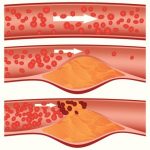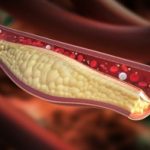 High levels of triglycerides can increase the risk of heart disease. Triglycerides are the fat found in our blood and work to provide the body with energy. Extra triglycerides become stored for a future date when they are required. Numerous research has suggested that high levels of triglycerides increases the risk of heart disease.
High levels of triglycerides can increase the risk of heart disease. Triglycerides are the fat found in our blood and work to provide the body with energy. Extra triglycerides become stored for a future date when they are required. Numerous research has suggested that high levels of triglycerides increases the risk of heart disease.
Triglycerides form from the finished product of digestion and come from the fat and carbohydrates which we consume to turn into energy for the body. Triglyceride levels are tested with a lipid panel which is a similar test to how cholesterol levels are checked.
Advertisement
The Centers for Disease Control and Prevention estimated that high triglyceride levels are a problem for nearly one-third of Americans. A rise in triglyceride levels has been seen over the last 30 years and yet only 1.3 percent of those with high levels take medication to lower them. This reveals that more attention must be played to triglycerides as high levels can have serious consequences and so more should be done in order to lower them – especially for those at high risk for heart disease.
Previous study shows triglycerides role in coronary disease
Coronary artery disease is a common form of heart disease and high levels of triglycerides can contribute to it. Research from the Broad Institute suggests that lowering triglycerides can be an effective means in lowering the risk of coronary artery disease (CAD).
Sekar Kathiresan, study lead, said, “The key question over the years about these biomarkers has been, which ones cause coronary artery disease and which ones are merely reflective of the disease process? The reason that question is important is not for prediction, because biomarkers are useful for predicting disease whether they are causal or not. The reason we want to distinguish between these factors is for treatment. We really only want to attack the causes of the disease.”
So far LDL cholesterol (bad cholesterol) is a known factor for heart disease and lowering it through the help of statins has been shown to help reduce a person’s risk of developing heart disease. HDL, on the other had, has always been thought to be a factor to help reduce heart disease but no connection has been found on how HDL can help improve CAD.
The research team looked at 185 variations in genetic coding which have been shown to be linked with blood lipid traits. Single nucleotide polymorphisims, or “SNPs,” are inherited by one or both parents.
The researchers then looked to see if SNPs affected LDL, HDL, triglyceride levels and CAD risk then compared the effects.
The researchers found an association between triglyceride levels and CAD similar to that of LDL and CAD. LDL cholesterol forms plaque along the artery walls and so the research believe that triglycerides may work in a similar fashion by depositing fat along the arteries.
Kathiresan concluded, “Clinically speaking, one of the ways to prevent a first heart attack or to reduce the risk of a second heart attack in someone who already has heart disease may be to treat patients with medicines that lower the levels of triglyceride-rich lipoproteins. Some drugs that target triglycerides are already being tested; it is now a matter of finding the right mechanism of lowering triglycerides that will effectively reduce disease risk.”
Guidelines for triglyceride levels
The National Cholesterol Education Program has created guidelines for normal triglyceride levels which are the following:
- Normal triglyceride levels: Below 150 mg/dL
- Borderline high triglyceride levels: 150 to 199 mg/dL
- High triglyceride levels: 200 to 499 mg/dL
- Very high triglyceride levels: 500 mg/dL or higher
Although cholesterol and fat are essential to the body maintaining normal levels are essential as high levels increases the risk of serious health problems, specifically to the heart.
Dietary cholesterol and triglycerides come from consuming red meat and dairy products. When these foods are consumed they become absorbed through the gut and dispersed through the bloodstream to reach the liver where they become processed. This is how the liver can develop non-alcoholic fatty liver disease because a diet high in fat and cholesterol makes the liver become fatty.
It is the liver’s job to deliver cholesterol and triglycerides to the body on top of producing about 75 percent of the cholesterol found in the body.
Difference between triglycerides and cholesterol
Although triglycerides and cholesterol are similar in the sense they are types of fat they do possess differences. A main difference between cholesterol and triglycerides is that cholesterol is used to build cells and certain hormones where triglycerides store unused calories and provide the body with energy.
Advertisement
Another difference is that cholesterol is largely affected by the fat which is consumed through diet where triglycerides are affected by total calories. Excess calories are turned into triglycerides and stored for when the body requires energy. Items like alcohol and sugary foods can have a larger impact on triglyceride levels.
Tips to lower triglycerides and increasing HDL cholesterol levels
Having high LDL cholesterol and triglycerides can raise serious health concerns and so it’s important to boost HDL and lower triglyceride levels in order to maintain proper health. Here are some tips in order to raise HDL levels and lower triglycerides.
- Lose weight
- Cut out sugar – the American Heart Association (AHA) recommends only five percent of your daily calories come from added sugar
- Increase your fiber intake
- Limit fructose – fructose is a type of sugar which can contribute to high triglyceride levels
- Eat a moderately low-fat diet – a moderately low-fat diet has been shown to be more effective at lowering triglyceride levels as opposed to a strict low-fat diet. The AHA recommends that 25 to 35 percent of your daily calories should come from fat.
- Be mindful of the fat you eat – there are good fats and bad fats. Avoid saturated and trans fats and consume more monounsaturated or polyunsaturated fat typically found in olive oil, for example
- Increase your fish intake – try salmon and sardines
- Exercise
- Limit alcohol
- Take triglyceride lowering drugs if necessary and recommended by your doctor
- Quit smoking
- Control diabetes if you have it
By following these tips and working close with your doctor you can have much success in lowering your triglyceride levels and protecting your heart.
